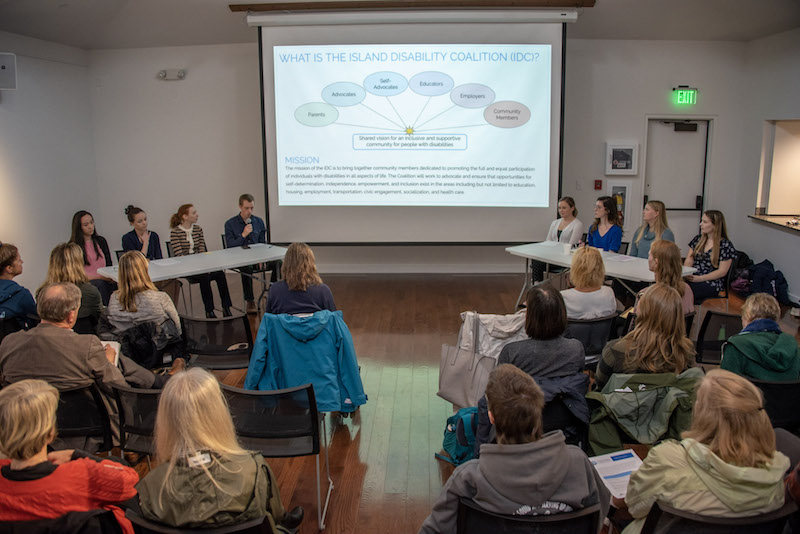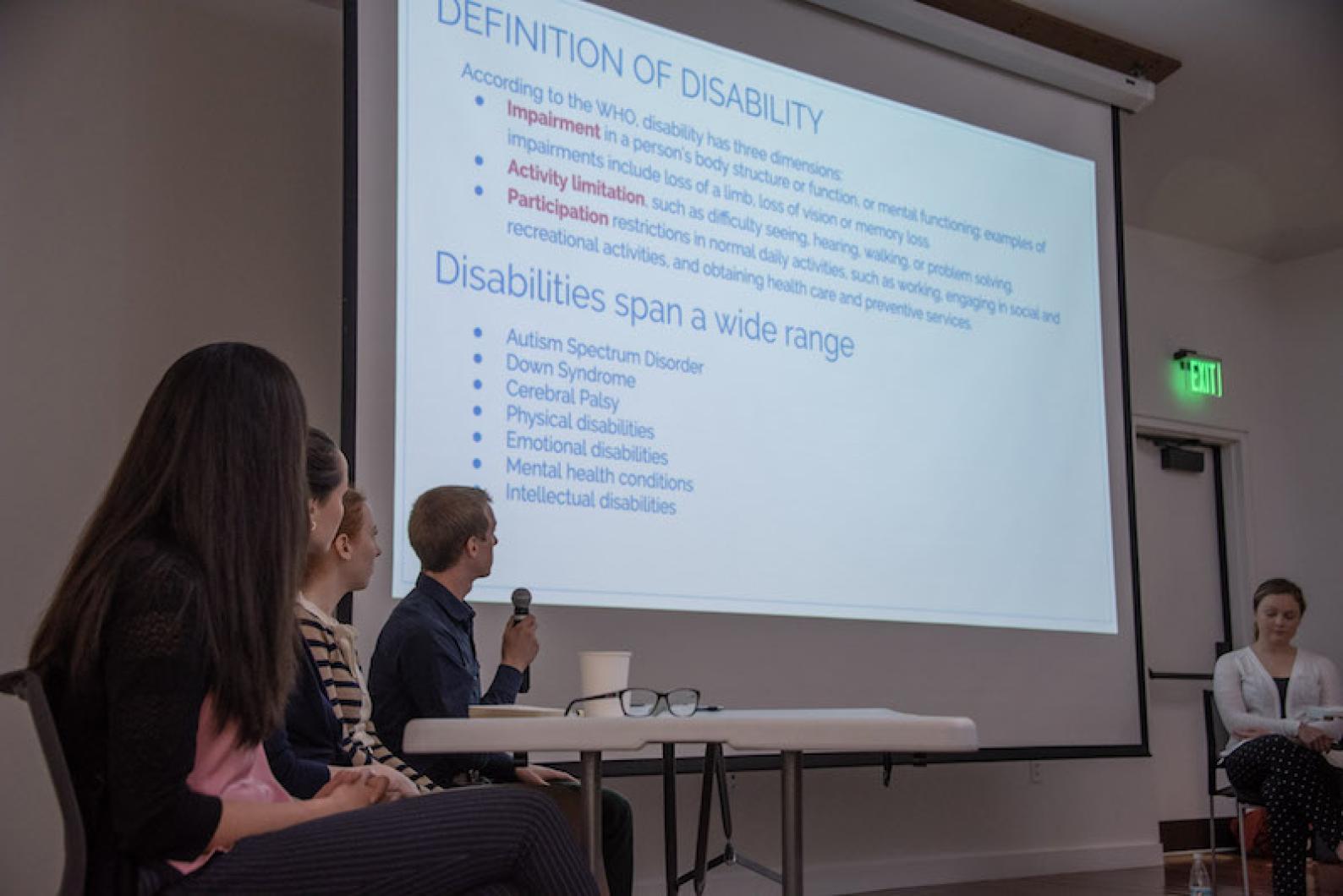About 500 young people on Martha’s Vineyard are living with one or more of a wide range of disabilities that can limit their access to healthy recreation, according to a report presented last week by eight nursing and medical students from the University of Massachusetts.
The university’s rural scholars program sends a group of nursing and medical students to the Island each autumn to spend two weeks studying a local health concern in deep detail. Past study topics have included end-of-life planning, addiction and tick-borne illness.
Last Thursday at the Edgartown Library, the Island Disability Coalition hosted the rural scholars’ report on access to recreation for Vineyarders aged three to 22 who live with disabilities.
The scholars lived in Island lodgings provided by the Martha’s Vineyard Hospital as they immersed themselves in the community, conducting scores of interviews and even making candy at Chilmark Chocolates.
A broad term for a range of conditions including autism, Down syndrome, cerebral palsy and other physical, mental and emotional impairments, disabilities affect 15 to 20 per cent of children in the Island public schools, according to the report.

“We believe this is something that affects the community as a whole, and not just this specific population,” Alex Schryver, a medical student from Lancaster, told an audience of about 30 people at the library.
Recreational activities are more than simply ways for kids to pass the time — they can help stave off ill health in adulthood, Shrewsbury medical student Filia Van Dessel said.
Research shows that limited physical exercise in childhood leads to the increased risk of obesity and other health problems in adulthood, Ms. Van Dessel said.
While the Vineyard does have a commendable number of services and resources for those with disabilities, the scholars noted that there is a disproportionate number of activities for children aged 12 and younger, with fewer options for those 13 to 22.
“There are many kids that definitely participate in some of the awesome opportunities on the Island,” said Needham medical student Arden Marin.
Others, however, may be watching television at home, isolated, she said. “Which kids have we not identified? Which kids are we missing out on?”
The rural scholars recommended raising both awareness and funding for existing resources, such as the Island Disability Coalition and the Island Autism Group, and creating a centralized resource list.
Other recommendations for a more inclusive Island included increasing support for parents, expanding peer support and buddies programs and encouraging local businesses to hire people with disabilities.
“We can do a lot together,” said Island Disability Coalition director Beth Wike.
The full report from the rural scholars will be posted on the Island Disability Coalition website.






Comments (1)
Comments
Comment policy »